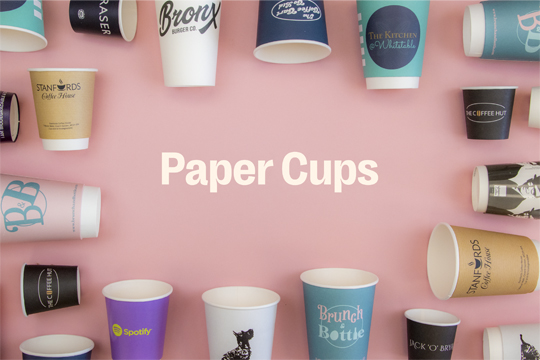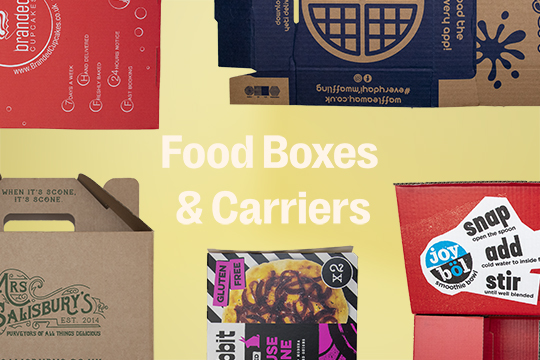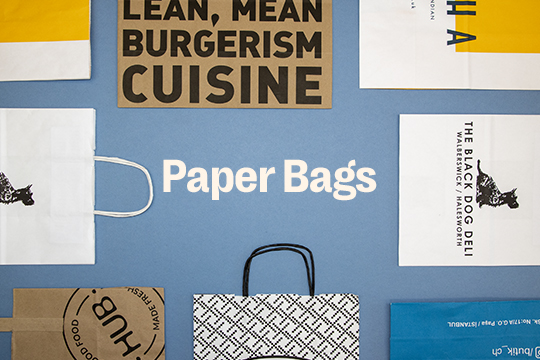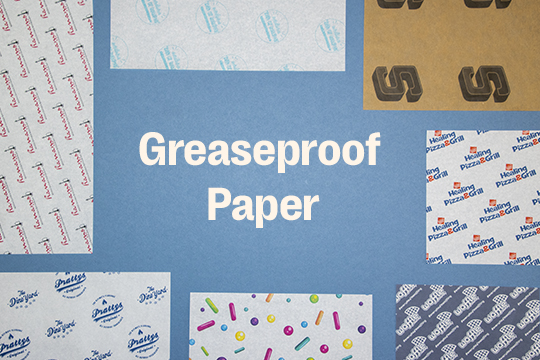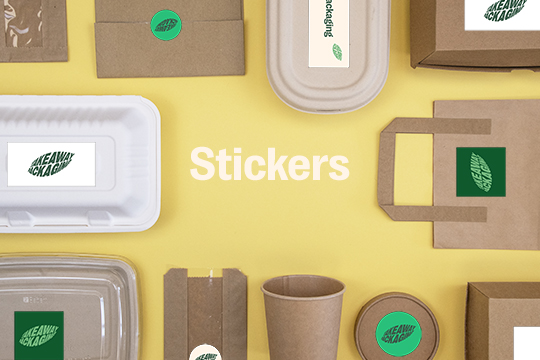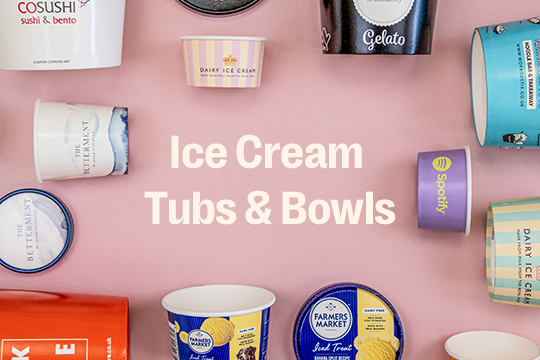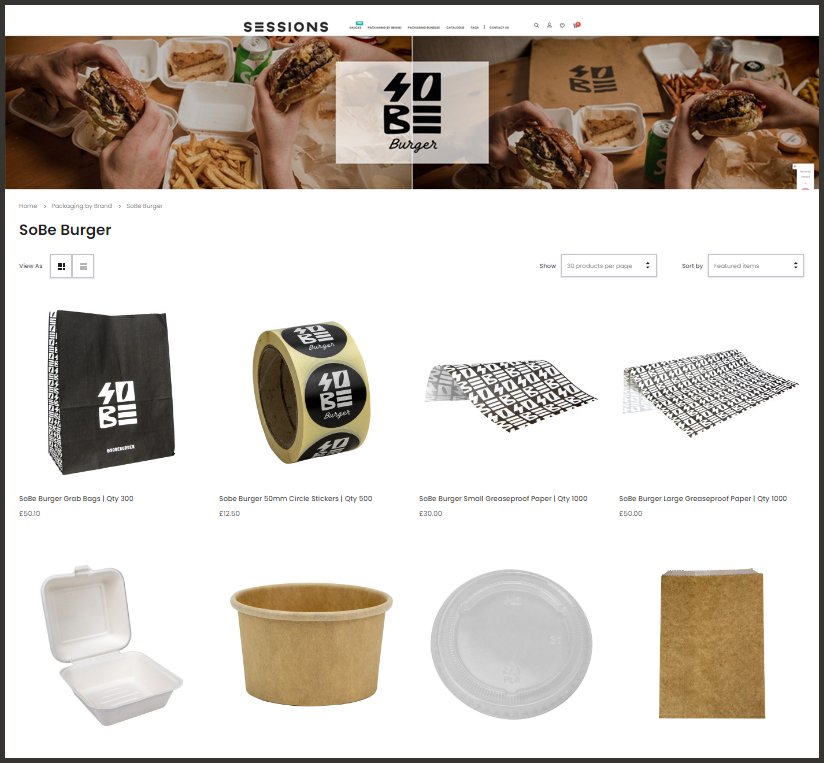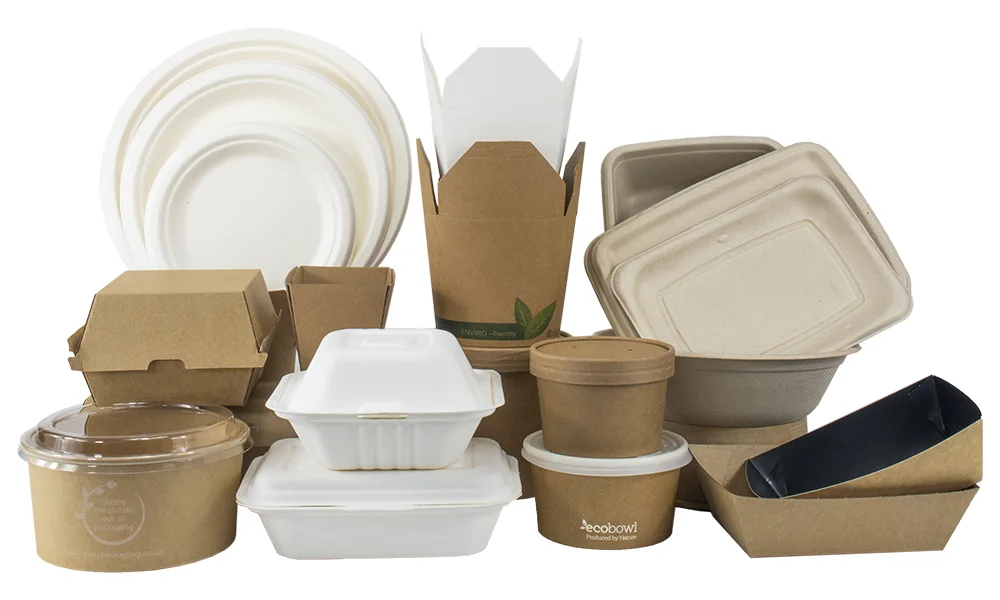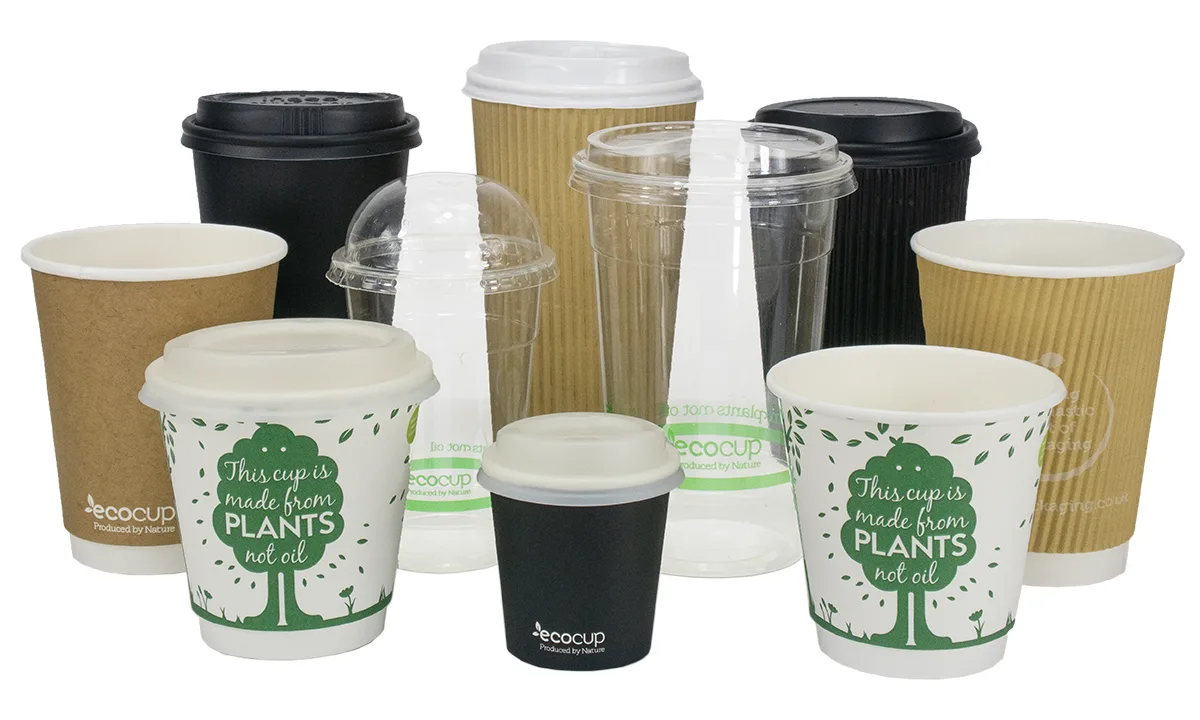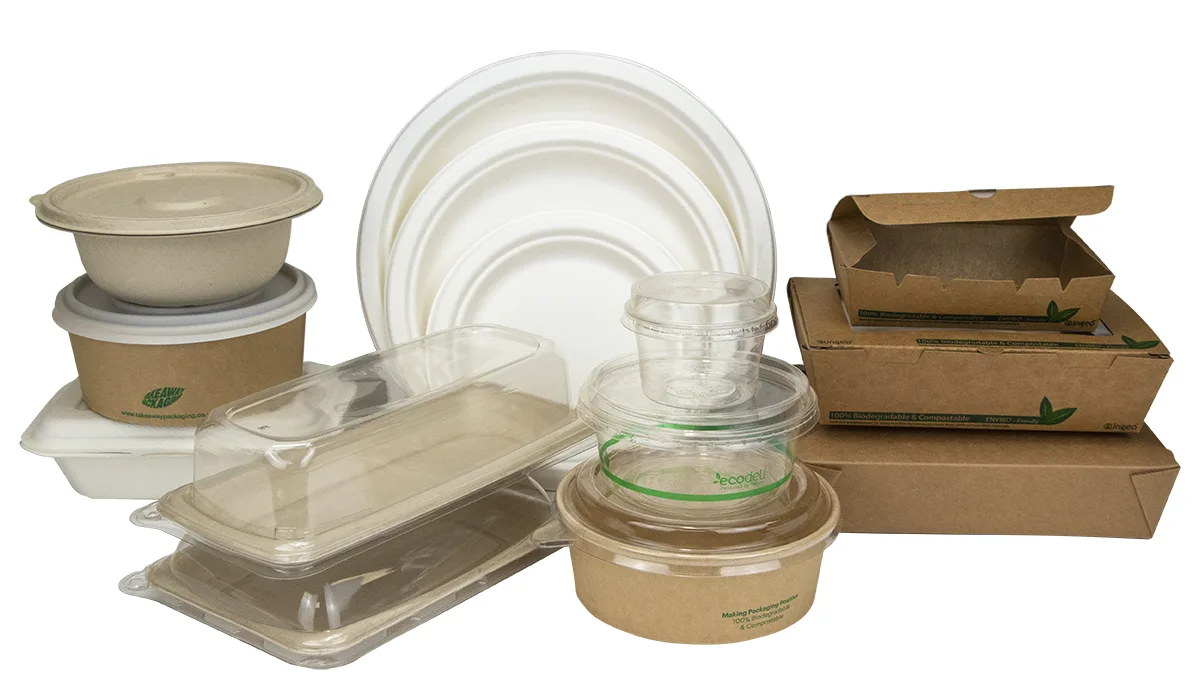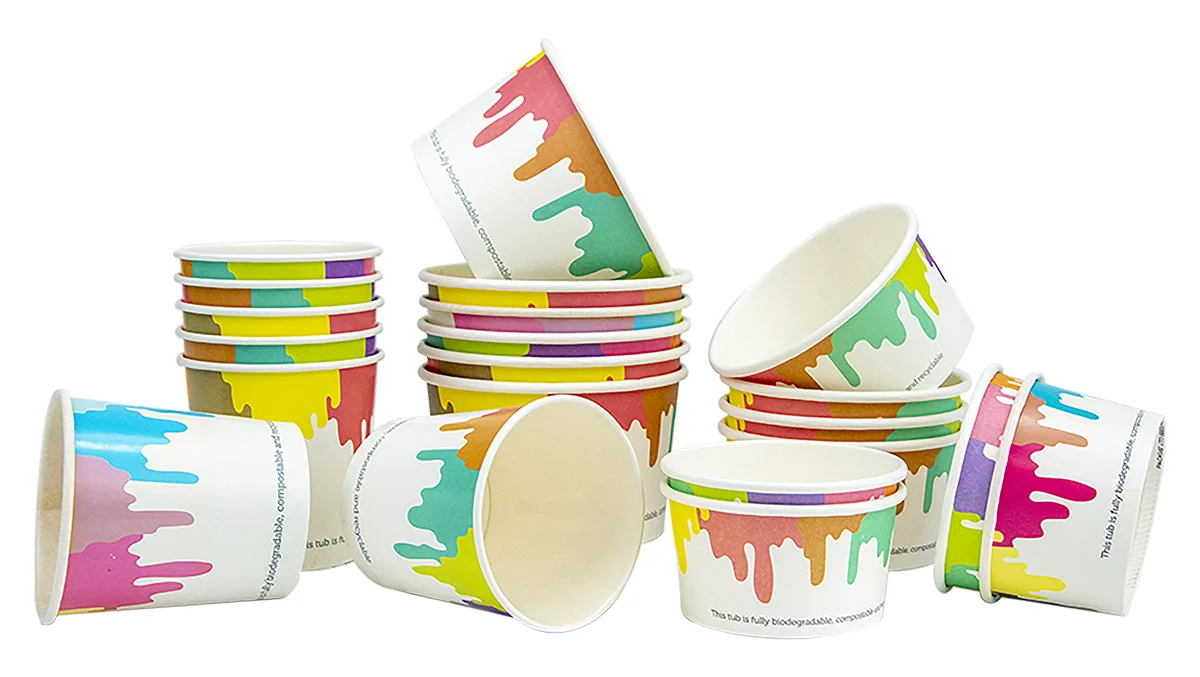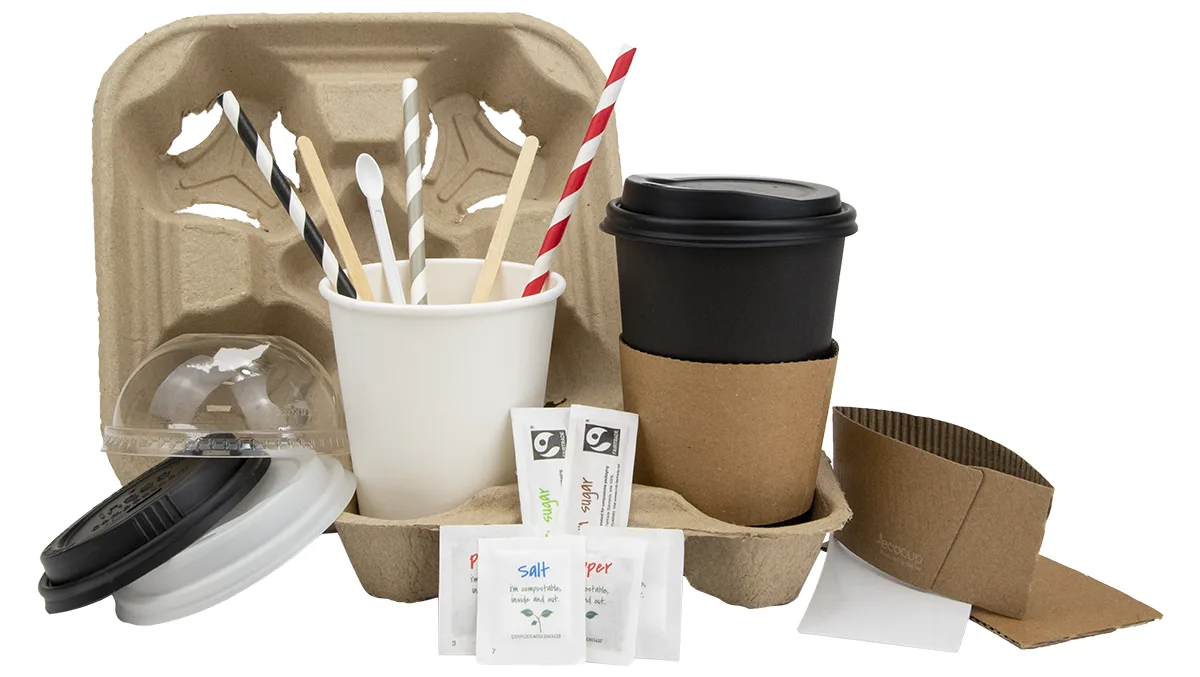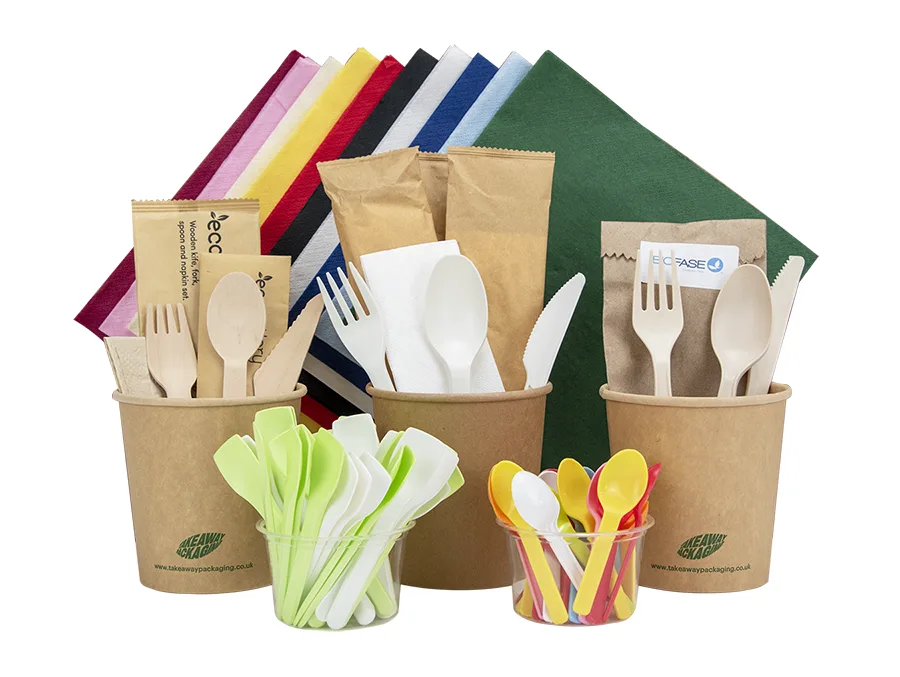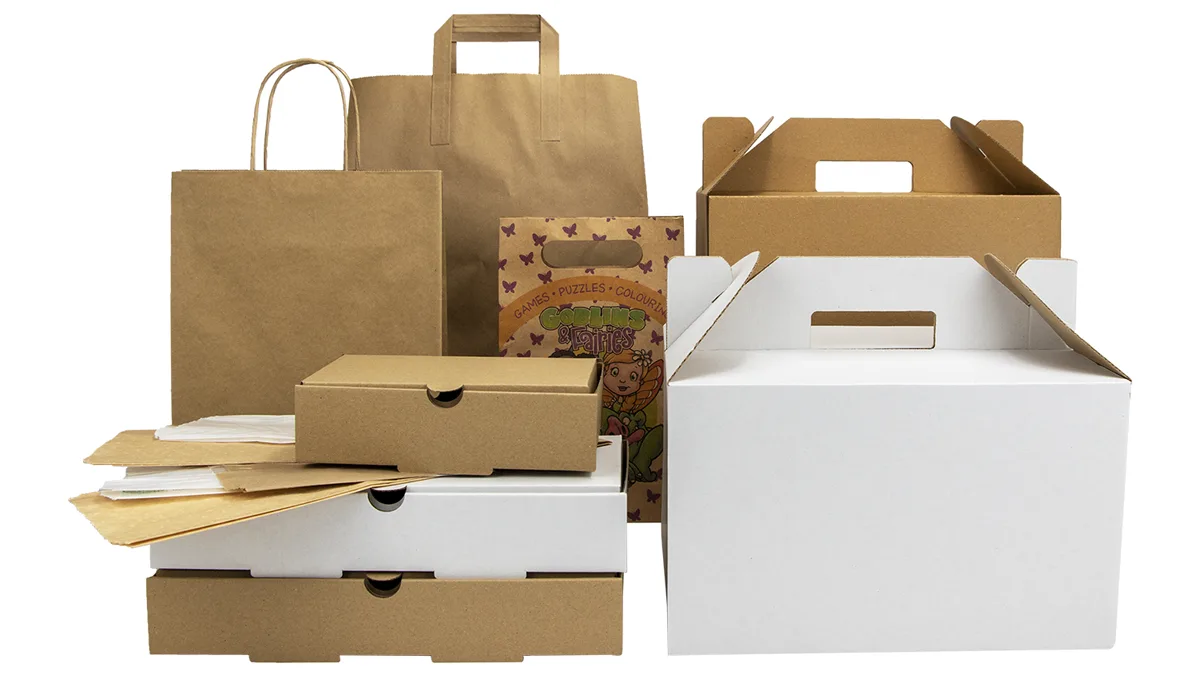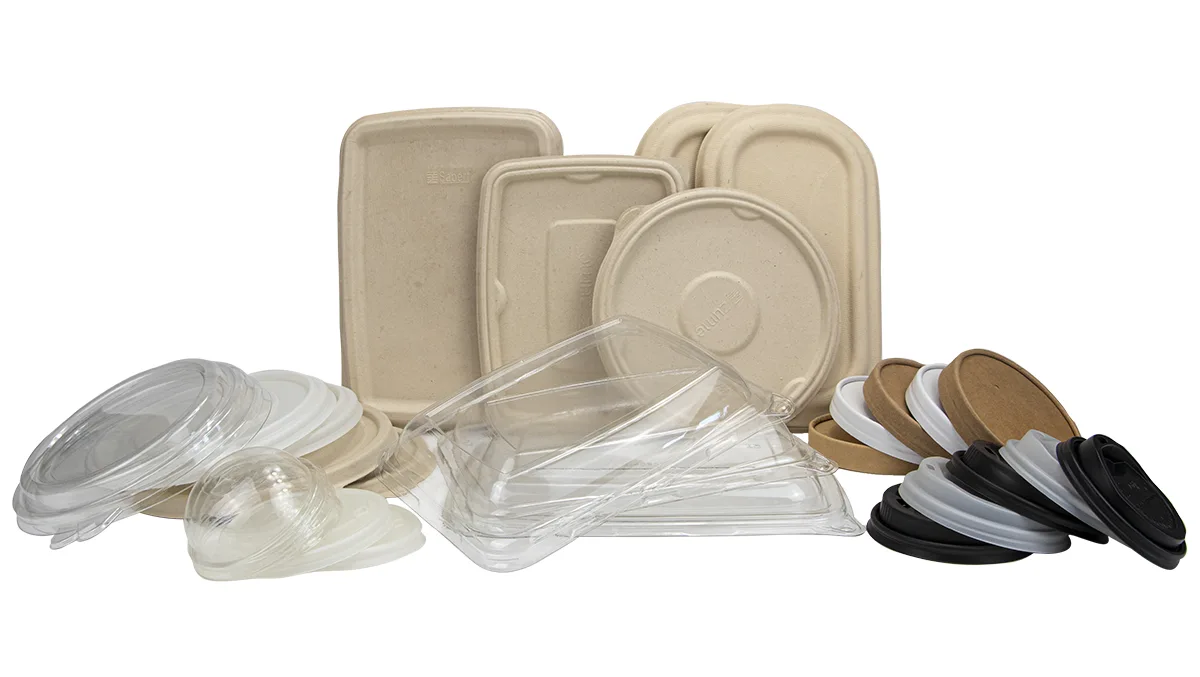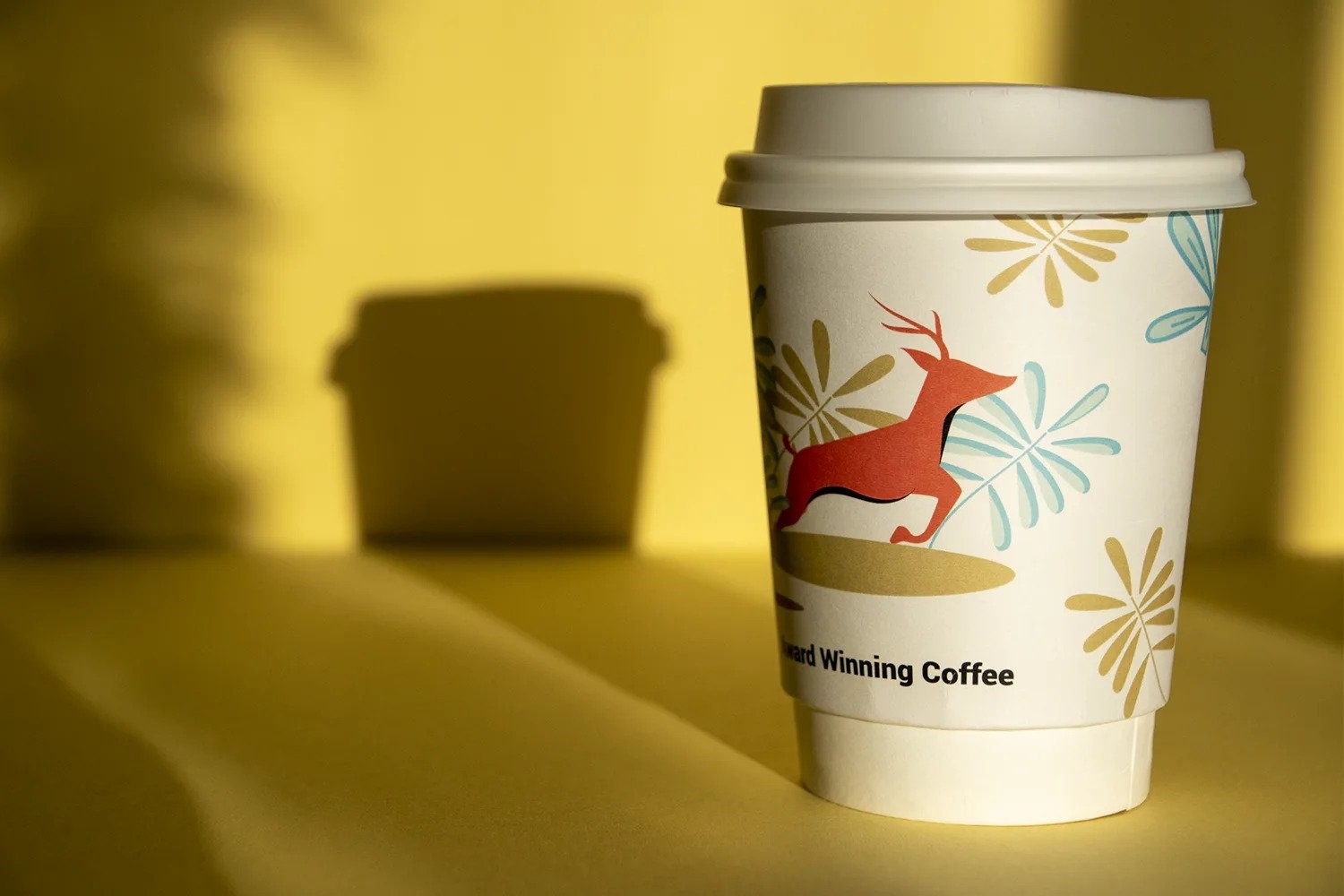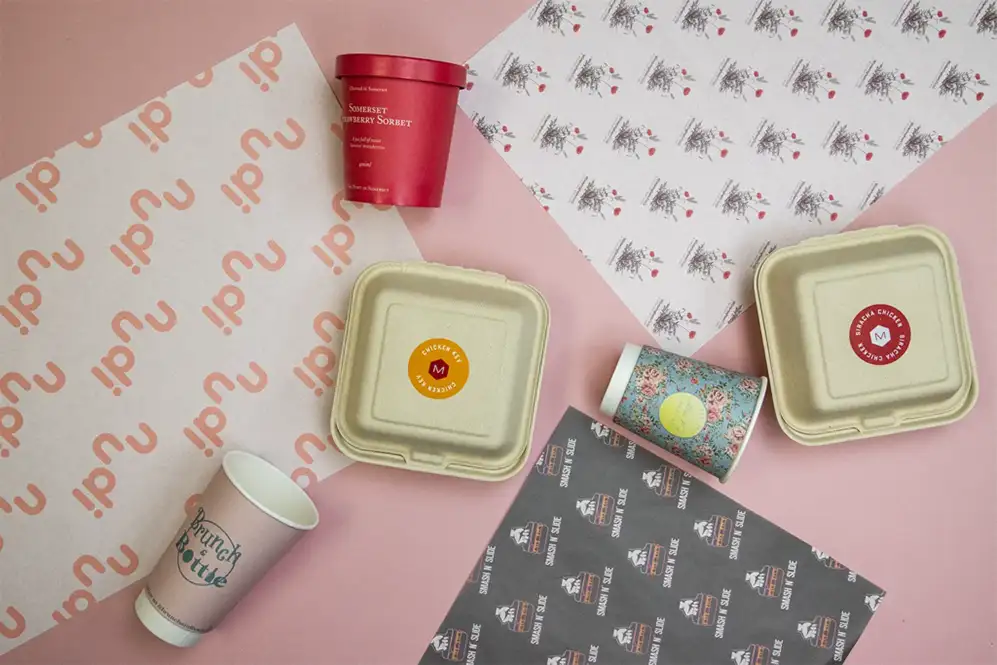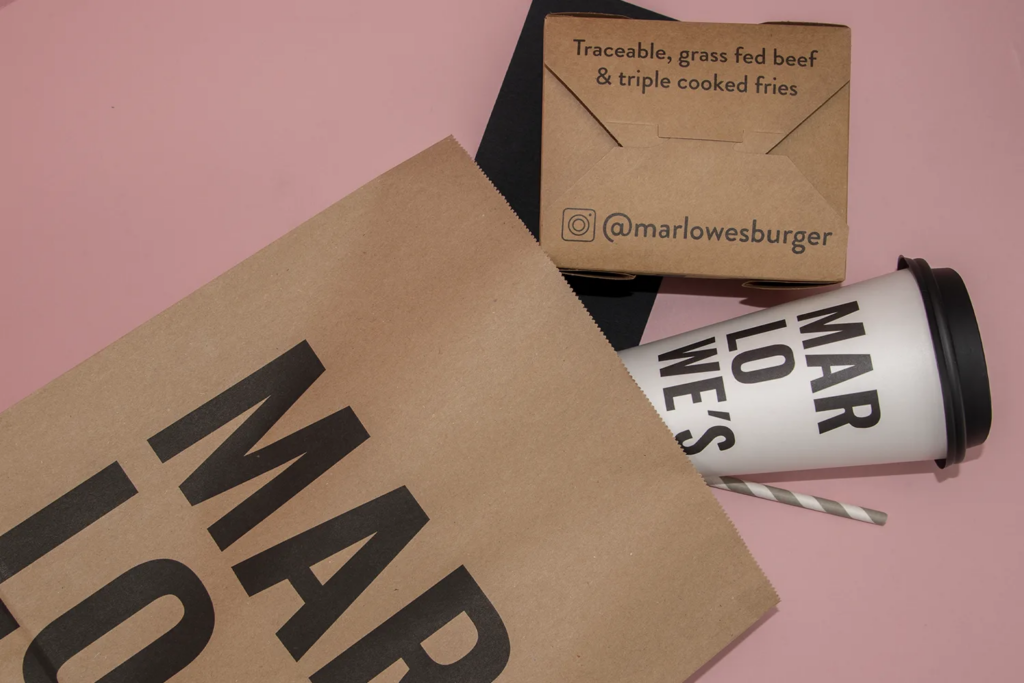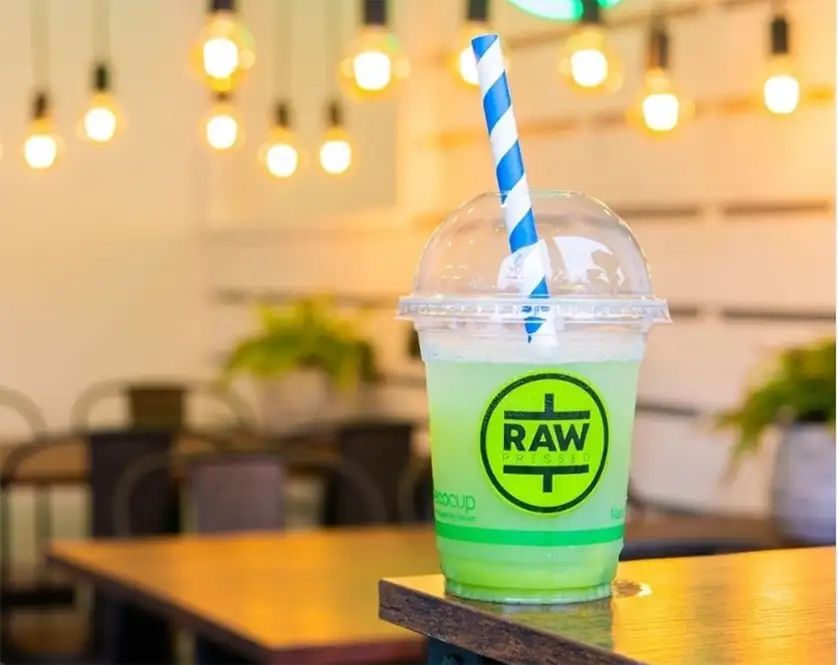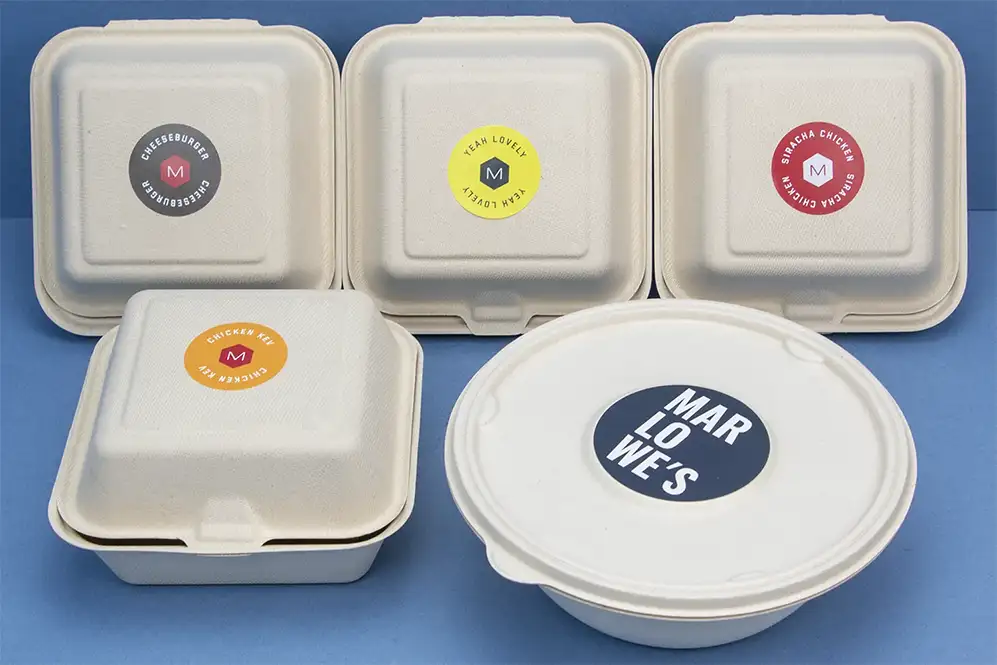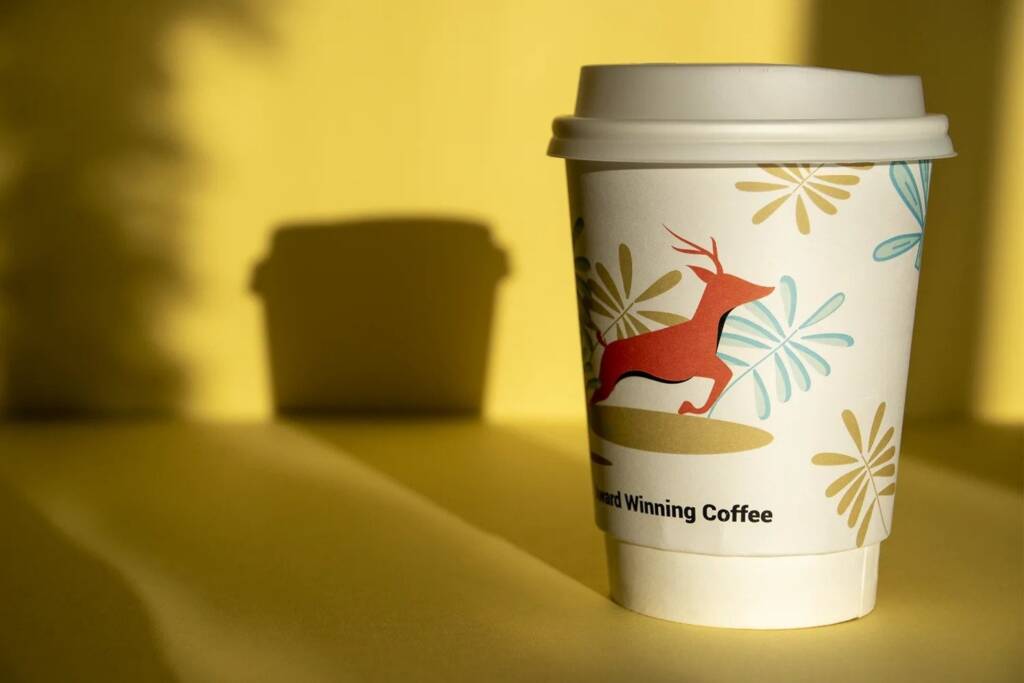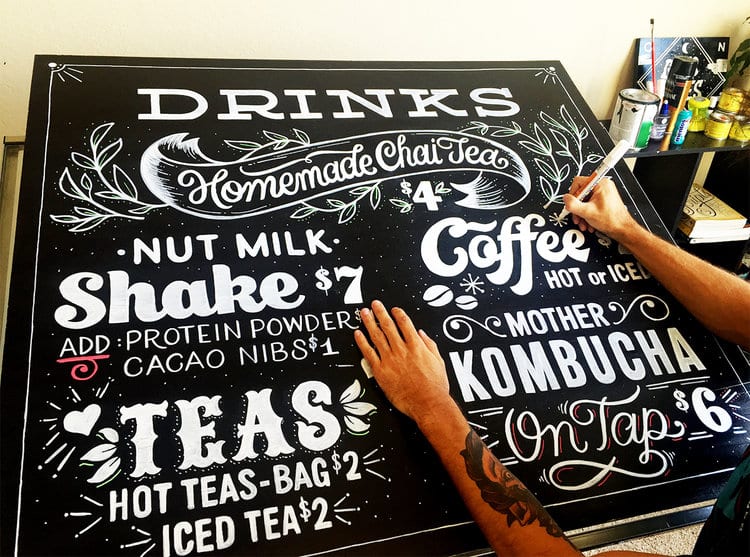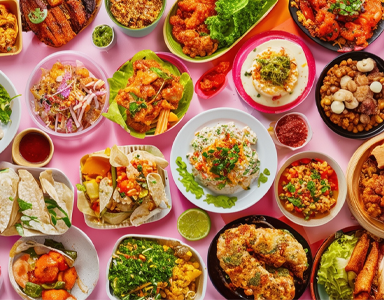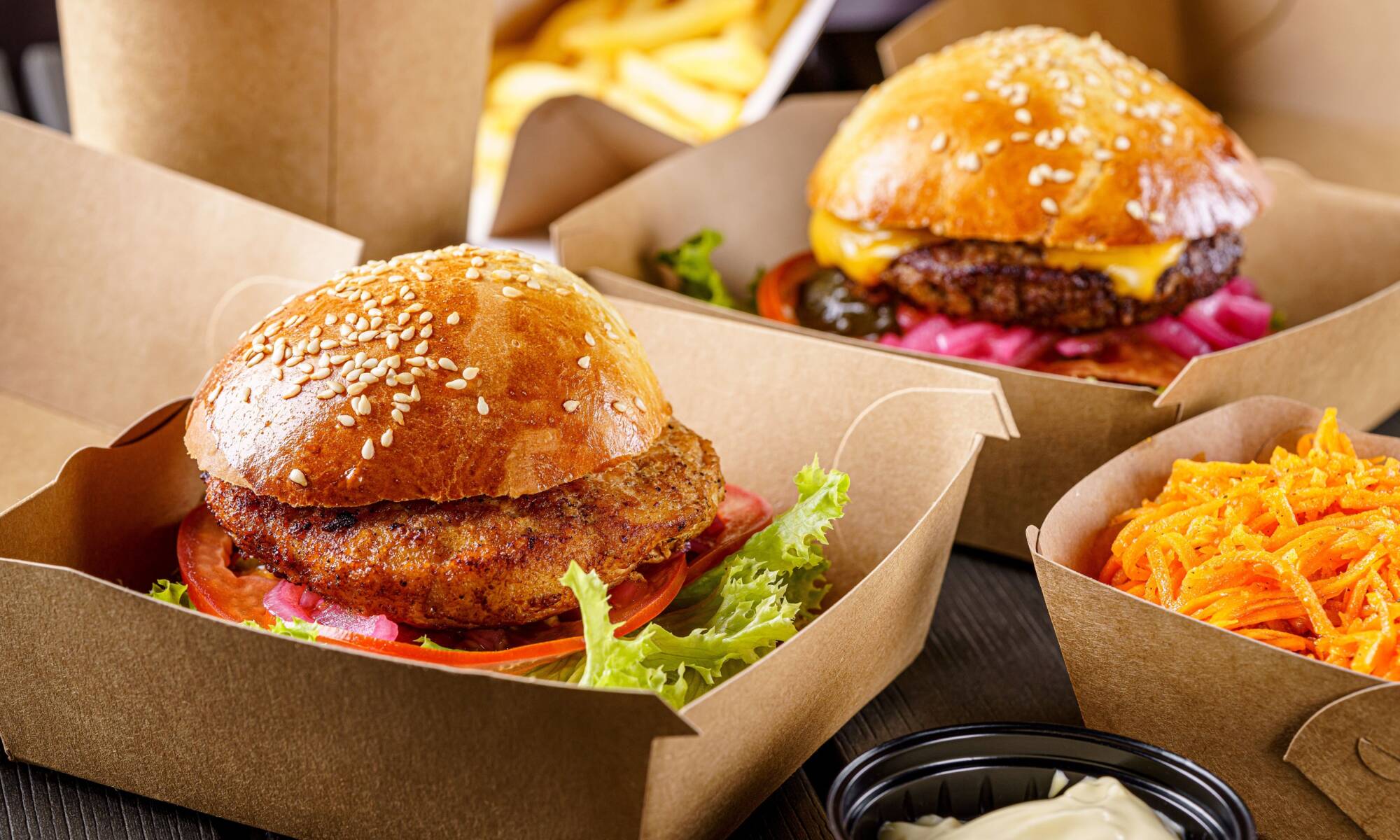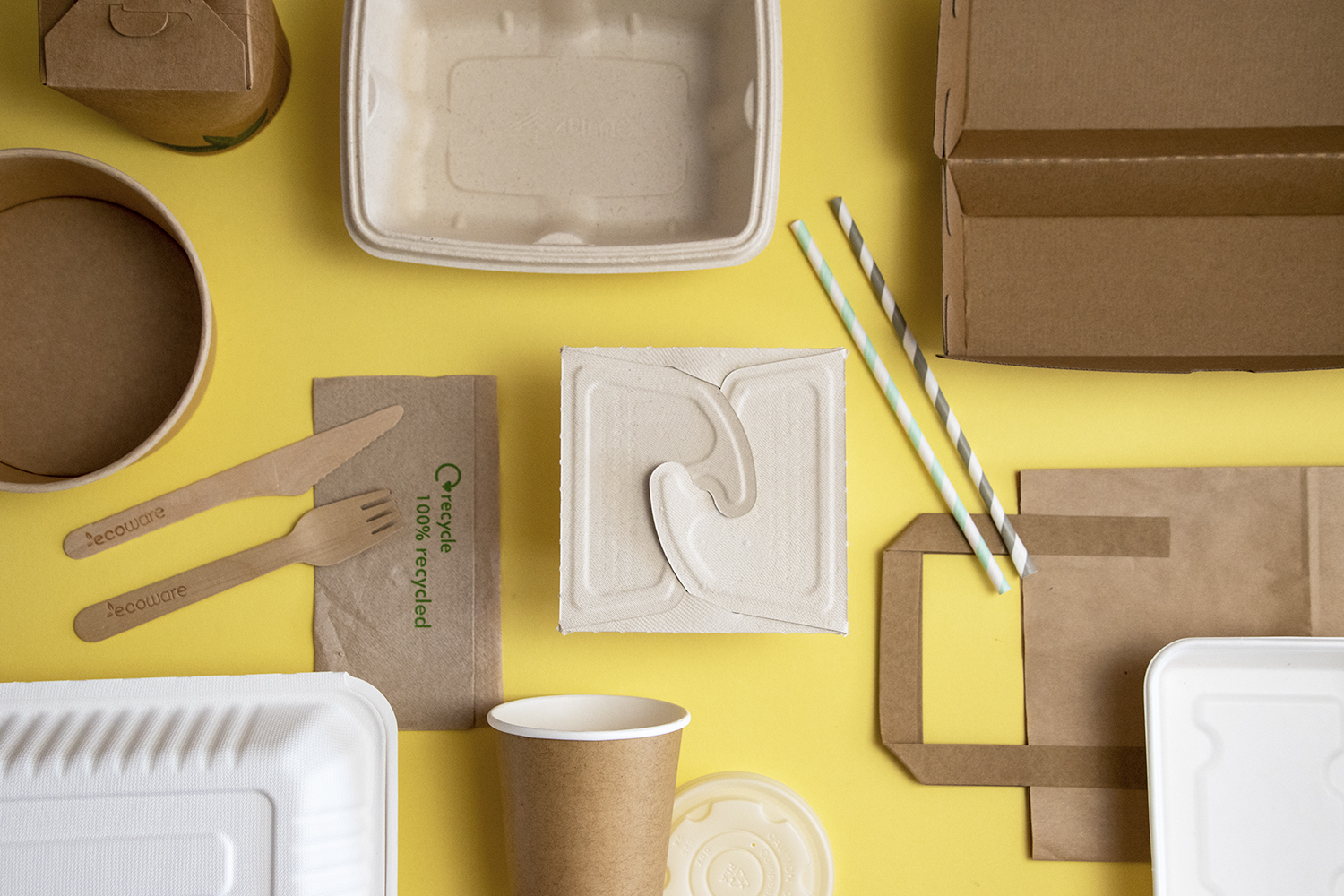With the strict regulations around single-use plastic coming into effect in 2023, it’s time to get clued up on organic food packaging. As the UK’s takeaway packaging experts, we know a thing or two about what it means to go green.
Learn what organic packaging really is, the different types of organic packaging available and discover some all-natural packaging ideas for your business — let’s go!
Related: A Guide to Plant-Based Packaging
What Is Organic Packaging?
Organic packaging is made from natural, plant-based materials, often derived from organic waste and renewable resources. These materials used to make organic packaging are biodegradable or compostable and can degrade naturally into non-toxic compounds, often improving soil quality.
Increasing consumer awareness about sustainability and stricter bans on single-use plastic are fuelling the transition from traditional packaging materials to greener alternatives. The single-use plastic ban introduced by the UK government will be enforced in October 2023 and covers many packaging items commonly used in the food service industry:
- Plastic plates
- Plastic trays
- Plastic bowls
- Plastic cutlery
- Polystyrene cups
- Polystyrene containers.
Materials like plastic and polystyrene are harmful to the environment as they are non-biodegradable and are produced using non-renewable resources. Organic food packaging offers a solution to strict bans on single-use plastic, and fulfilling consumer demands for sustainability.
Types of Organic Packaging Materials
As the demand for sustainable, organic food packaging continues to soar, manufacturers are coming forward with new organic packaging ideas. Now, there’s a wide variety of organic packaging material types available to choose from. We’ll take a look at some of the best examples of organic packaging to help you decide which might be most suitable for you!
Paper
Paper is considered one of the most sustainable types of organic packaging material. Made from naturally renewable resources, paper is easily recycled or composted — as long as they’re not contaminated by oil or grease.
Paper is made by extracting fibres from trees to turn them into wood pulp. This wood pulp is then mixed with water, flattened and dried out flat. Then, it’s cut out into rolls or sheets.
Because paper is so lightweight it’s easier to carry, making it an eco-conscious material best suited for transporting takeaways. For example, our paper bags are made from 80-100% recycled content and recyclable and compostable after use. This helps consumers dispose of their organic food packaging responsibly. But your paper bags don’t have to be plain. We have colourful grab bags and custom options to advertise your brand too.
Plus, if you sell sandwiches, some sandwich and baguette bags (like ours!) have a transparent window made from bioplastic that can be commercially composted after use. Show off your food and your commitment to sustainability by replacing your plastic bags with paper ones and avoid the plastic bag tax.
Related: Sustainable Packaging for Sandwiches: It’s Time to Go Green
Bamboo
Bamboo is a fast-growing and renewable resource which can be used to make various organic packaging products. It’s tough, but it’s also biodegradable and compostable. It’s an ideal material for items like disposable cutlery that needs to be strong but suitable for single-use with hot and cold food.
With plastic, single-use cutlery banned at the end of 2023, bamboo is a superb choice for eco-friendly cutlery, chopsticks and skewers.
Certain kinds of wood (and even avocado seeds!), like Birchwood, are also highly suitable for cutlery — providing a strong and durable finish. We offer wooden cutlery sets made from Birchwood, a renewable resource in large supply.
Single-use cutlery is one of the most common forms of litter found on our beaches. In fact, single-use plastic litter and discarded fishing gear make up 70% of all marine litter in the EU. It’s high time to clean up our act.
Bagasse (Sugarcane)
Bagasse is the term used to describe the dry, fibrous pulp produced after crushing sugarcane to extract its juices. It’s an immensely versatile organic packaging material that can create durable hot and cold food containers. Like bamboo, bagasse regrows at a rate of two or three times a year, so it’s the perfect eco-packaging choice due to renewability.
Polystyrene trays and cups are non-biodegradable and use toxic chemicals in their manufacturing process. These chemicals can leach into food and have been linked to causing cancer in humans.
Bagasse containers and plates are also incredibly resilient and functional. They’re microwave, oven and freezer friendly which means you can use them for any and every kind of food.
If you’re still using polystyrene packaging, you can easily replace it with bagasse clamshell containers, or say so-long to spillages with our bagasse anti-leak containers.
Bioplastics
Another organic food packaging triumph is bioplastics. These are materials made from renewable sources such as corn, sugarcane, and potatoes. They share many of the same properties as regular plastics, but they’re biodegradable and compostable, making them an excellent, eco-friendly alternative.
Consumers are willing to pay more for sustainably packaged products. Simple things like replacing your polystyrene cups with biodegradable and compostable cups is a great place to start.
For those vendors who sell smoothies, juices or bubble tea, bioplastic cups made from polylactic acid (PLA) make an excellent selection. The material used to make these cups is derived from plants, not oil, making these products 100% compostable. You won’t lose any of the functionality of traditional plastics, but you’ll slash your carbon footprint!
Related: Disposable Coffee Cups: A Complete Guide for Eco-Conscious Businesses
Organic Packaging Ideas for Eco-Conscious Brands
Organic packaging doesn’t have to be boring. If you want to use natural, sustainable materials for your food packaging, plenty of custom options are available to make your packaging exciting — and eco-friendly.
Branded packaging is not to be underestimated. Sharp, striking designs can help you stand out from competitors with your delicious and eco-conscious offering.
Find out why you should use branded takeaway packaging.
The Benefits of Organic Food Packaging Alternatives
One of the main benefits of opting for organic packaging is avoiding disruption to service from the imminent single-use plastic bans. With stricter regulations on plastics likely to be rolled out in the near future, switching to sustainable packaging will help avoid rising costs of recycled plastic and potentially fines for non-compliance.
Using organic food packaging allows businesses to demonstrate their commitment to sustainability through taking responsibility for their packaging waste. By showing off eco-credentials, your packaging can be a valuable marketing tool to differentiate yourself from rivals.
Undeniably, sustainability equals satisfaction. Customer satisfaction, to be exact. Customers don’t feel guilty disposing of eco-friendly packaging, and it’s much easier to do it responsibly. Increase customer loyalty because consumers will appreciate your efforts to reduce your environmental impact.
Did you know we’re officially carbon-neutral? We’re offsetting all the carbon emissions we make to allow you to take our packaging away guilt-free.
Potential Challenges of Using Organic Food Packaging
We’ve discussed the numerous advantages of using organic food packaging, but what about the challenges? You’ll need to ensure that you’re using food-grade packaging, such as our BePulp bagasse or Kraft packaging for hot food.
All food packaging needs to be stored appropriately. If you’re looking for a storage solution for your food packaging, we can help. Our facilities have an AA rating for BRCGS accreditation (Brand Reputation Compliance Global Standards). To this requirement, all our stock is stored in a warehouse that maintains the highest food safety standards.
Make sure that when you’re serving food with your organic packaging, you let your customers know how to dispose of it responsibly. Whether that’s adding instructions to your packaging through customisation or by using signage at your business to help customers put their packaging in the right waste receptacles.
Organic food packaging will have a higher cost up-front, but it’s worth it for the bonus marketing ammunition. After all, your packaging is free advertising. Buy your organic packaging wholesale from a trusted stockist and make long-term savings further down the line.
Ordering Organic Packaging with Us
Are you considering organic food packaging for your business? We’ve got all the planet-positive packaging you need! No matter what area of the food service industry you’re in, there’s a rising demand for eco-friendly packaging.
Get ahead of the game and avoid the rising costs of plastic packaging, impress your eco-conscious customers and help them enjoy your food a little bit more, safe in the knowledge that you’re doing your bit for the planet. Ready to start your eco-journey?
Buy high-quality organic packaging for food and drinks products from our online shop or get in touch for a free design quote in less than 48 hours.

